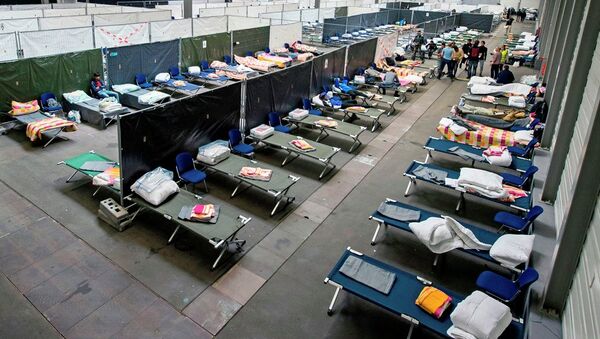"As the world is witnessing the largest displacement crisis since World War II, which is driving an unprecedented number of people fleeing war and persecution to undertake dangerous, life-threatening journeys to safety, the European Union’s common policy on asylum lacks solidarity and consistency," the Council said in its Annual Report 2014/2015, published as part of the European Asylum Information Database (AIDA) project.
The report entitled "Common asylum system at a turning point: Refugees caught in Europe’s solidarity crisis," contains information up to date as of August 31.
It revealed that Germany, Hungary, Italy, France and Sweden accounted for 80 percent of the total number of applications for international protection in the European Union.
"The fact that the vast majority of asylum applications in the EU continued to be lodged in only 5 EU Member States in 2014 and 2015, while some of those Member States take in the highest numbers of refugees and already face significant challenges in their reception systems, has become a key political stumbling block and is likely to remain high on the EU’s political agenda," the Council said.
The responses of individual EU member states and Brussels to the refugee crises so far have included building border fences and boosting security as well as pledging millions of dollars to address the humanitarian crises in the migrants’ countries of origin.
The United Nations estimated recently that 850,000 migrants from the Middle East will seek refuge in Europe in the next two years.
EU internal affairs ministers are scheduled to meet to discuss the European Commission's proposal for a permanent and biding scheme to redistribute refugees on September 14.




